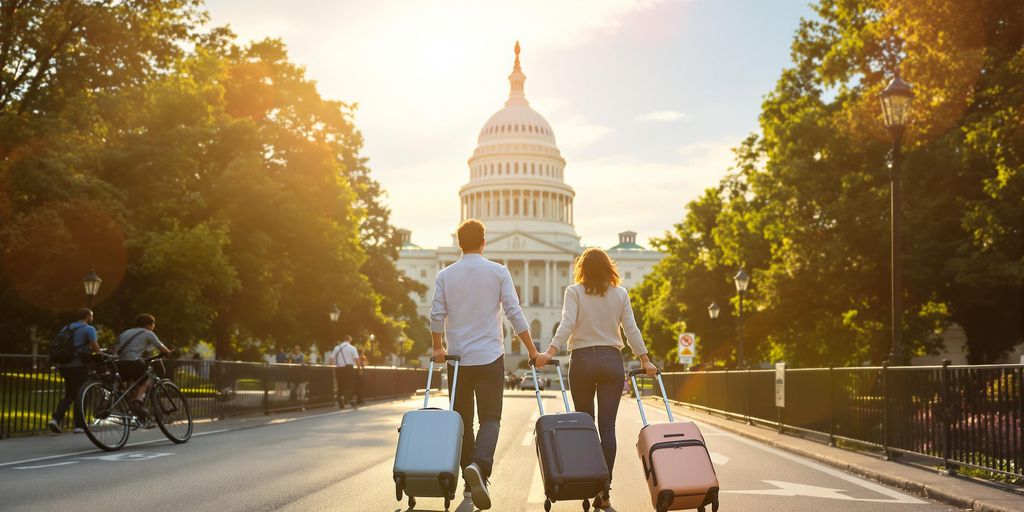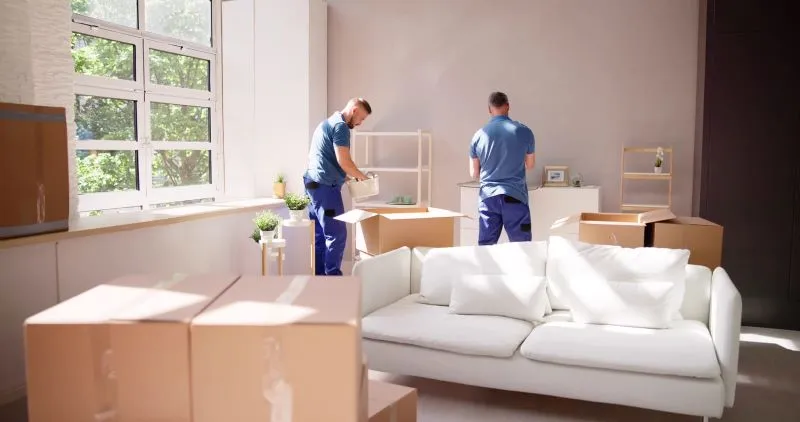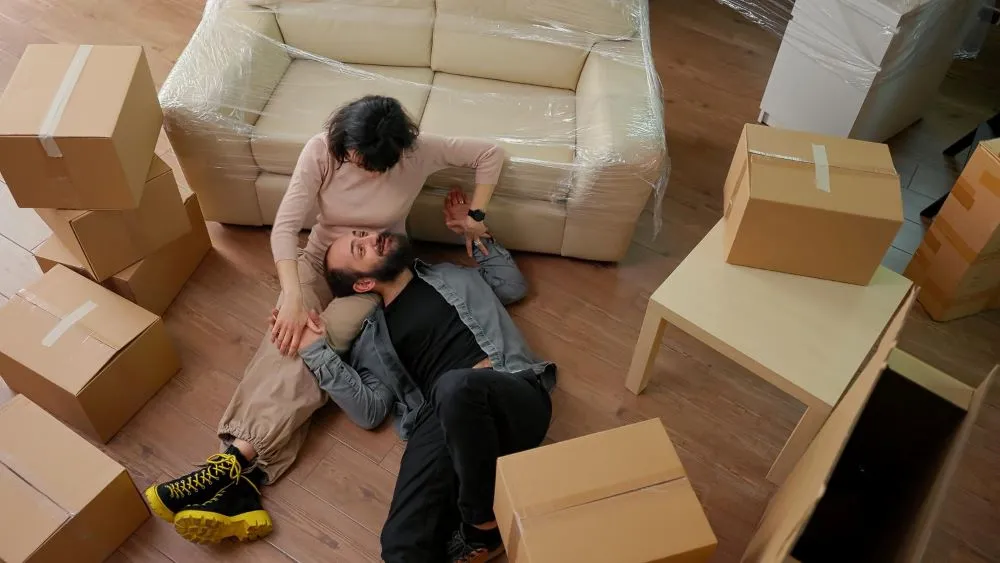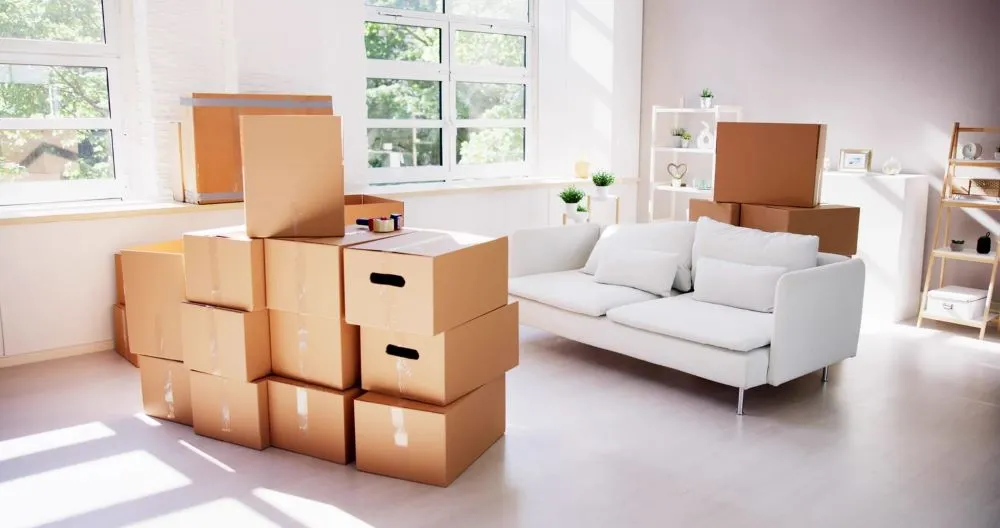Moving to DC Without a Car? Your Ultimate Guide to a Smooth Transition
Rassul Yeshpayev
August 20, 2025
Rassul Yeshpayev
August 20, 2025
So, you're thinking about making the big move to Washington D.C., but the idea of managing without a car feels a little daunting? Don't sweat it! Lots of people do it, and honestly, it can be a really smart way to go. This guide is all about helping you get settled in the nation's capital without the hassle of owning a car. We'll cover everything from packing smart to getting around like a local. Moving to DC Without a Car? Here’s How to Do It Smoothly.
Key Takeaways
- Pack smart with seasonal clothing and comfortable shoes, as DC is a very walkable city.
- Get familiar with the DC Metro system and consider a SmarTrip card for easy travel.
- Budget carefully, as DC has a higher cost of living, especially for rent and dining.
- Choose a neighborhood that fits your lifestyle, whether you want walkability or family-friendly amenities.
- Embrace the city's culture, build a social network, and explore local events to feel at home.
Packing Essentials for Your Washington DC Move
Moving to Washington DC without a car means you'll be relying on your own two feet and the city's public transit system a lot. So, packing smart is key to making this transition feel less like a chore and more like an adventure. Think about what you'll actually need day-to-day in a city environment.
Seasonal Clothing for All Weather
DC weather can be a bit of a mixed bag. You've got hot, sticky summers and cold, sometimes snowy winters. Spring and fall are usually pretty pleasant, but you never quite know. It's best to pack layers. Think t-shirts, long-sleeved shirts, a couple of sweaters, and a good jacket that can handle wind and rain. Don't forget a warmer coat for those winter months. You'll want to have a mix so you're ready for anything the DC climate throws at you.
Comfortable Footwear for City Exploration
Seriously, you're going to be doing a lot of walking. Whether it's exploring different neighborhoods, heading to work, or just running errands, comfortable shoes are non-negotiable. Pack at least one pair of really good walking shoes or sneakers. Maybe a slightly dressier but still comfortable pair for going out. Leave the heels or uncomfortable dress shoes for special occasions only. Your feet will thank you later.
Essential Documents and Electronics
This is the stuff you absolutely cannot lose. Think about your ID, passport, any important financial records, lease agreements, and moving paperwork. Keep these in a separate bag that travels with you, not in the big moving boxes. Also, pack your phone, laptop, tablet, and all their chargers. You'll want these easily accessible for staying connected and figuring things out when you first arrive. It’s a good idea to secure valuable items like jewelry and cash in a personal bag [ec2c].
Home Necessities and Personal Touches
When you get to your new place, you'll want to be able to settle in without a hitch. Pack the absolute basics you'll need right away: bedding, a few kitchen essentials (like a mug, plate, and utensils), and maybe some basic cleaning supplies. If you have space, bring a few personal items that make a place feel like home – photos, a favorite book, or a small piece of art. It helps make the new place feel less like a temporary stop and more like your actual home.
Navigating Washington DC's Public Transportation
Moving to Washington DC without a car is totally doable, and honestly, it might even be less stressful than dealing with city parking! The public transportation here is pretty solid, and once you get the hang of it, you'll be zipping around like a local.
Understanding Metro Schedules and Routes
The Washington Metropolitan Area Transit Authority (WMATA) runs the Metro system, which includes the Metrorail (subway) and Metrobus. It's the backbone of getting around the city and into the surrounding suburbs. The Metro system is extensive, covering a lot of ground, but it's important to know which lines go where you need to go. You can find detailed maps and schedules on the WMATA website, which is a great resource for planning your trips. It’s also super helpful to download a transit app; many people find them easier to use for real-time updates than the official WMATA site.
Maximizing Your Commute with SmarTrip
To use the Metro or buses, you'll need a SmarTrip card. You can buy these at any Metro station or online. Think of it like a reloadable debit card for transit. You tap it when you enter and exit the paid area of a station, and the fare is deducted automatically. It's way easier than fumbling with cash or paper tickets. You can load money onto it at station vending machines or online. For frequent riders, consider looking into monthly passes or other fare-saving options if they fit your commute. It's worth checking out your Metro minute for quick tips on using the system.
Exploring Alternatives: Biking and Walking
DC is surprisingly bike-friendly, with a growing network of bike lanes throughout the city. Capital Bikeshare is a popular option for short trips; you can find stations all over the place. It’s a great way to get some exercise and see the city up close. Plus, walking is always an option, especially if you live in a central neighborhood. Many parts of DC are very walkable, and you'll discover little shops and parks you might miss otherwise. Just make sure you have comfortable shoes – you'll be doing a lot of walking!
Budgeting for Your Life in the Capital
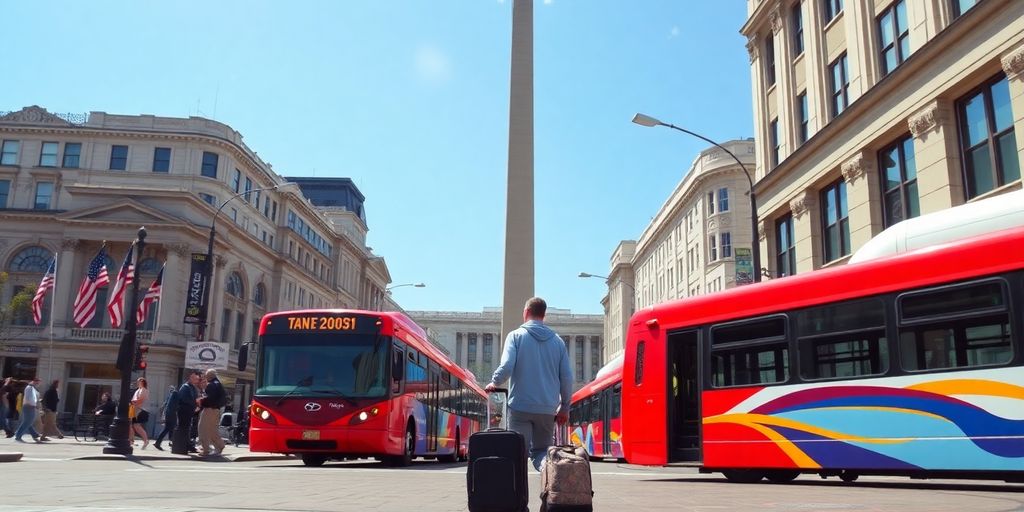
Moving to Washington DC means getting a handle on your finances, as the cost of living here is definitely higher than the national average. It’s not just about the big stuff, either; those everyday expenses can really add up.
Estimating Moving Expenses
First off, let's talk about the actual move. Hiring movers, paying security deposits, and maybe even needing temporary housing while you get settled can be a significant chunk of change. Depending on how far you're coming from and how much stuff you have, you could be looking at anywhere from $1,000 to $5,000. It’s wise to get a few quotes from moving companies to get a clearer picture.
Understanding Daily Living Costs
Once you're in DC, the day-to-day costs are a bit steeper too. Groceries and utilities tend to be more expensive than in many other places. This is just part of living in a major capital city. Even small things like sales tax, which is 5.75% and higher for things like dining out, factor into your monthly spending. Groceries themselves are exempt from sales tax, which is a small relief.
Factoring in Entertainment and Family Expenses
DC has a ton to do, from fancy restaurants to museums and events. While it’s great for experiencing the city, these activities cost money. If you have a family, you'll also want to think about costs for things like childcare or after-school programs, which can be quite substantial here. Planning for these discretionary expenses is key to enjoying your new life without financial stress. It’s a good idea to create a budget worksheet to track everything, or use a budget calculator to help you plan your finances.
Being prepared financially is a big part of making your move to DC a success. It helps you avoid surprises and enjoy everything the city has to offer.
Choosing the Right Neighborhood
Picking the right spot to live in DC without a car is a big deal. You want to be somewhere that makes sense for getting around and also feels like home, right? Think about what you need day-to-day. Are you all about being in the middle of everything, or do you prefer a quieter vibe?
Identifying Walkable Neighborhoods
When you don't have a car, walkability is king. You'll want to be close to grocery stores, coffee shops, and maybe even your workplace. Some areas are just built for walking.
- Dupont Circle: This area is super walkable with lots of shops, restaurants, and cultural spots right there. It's great for people who like to be in the thick of things.
- Capitol Hill: Known for its historic charm and row houses, Capitol Hill also offers a lively atmosphere with farmers markets and easy access to parks. It's a good mix of residential feel and city buzz.
- Georgetown: If you're looking for upscale shopping and dining, Georgetown is the place. It's very pedestrian-friendly, though it can be pricier.
Considering Neighborhood Vibes for Singles
If you're flying solo, you might want a neighborhood with a good social scene and plenty of activities. Think about places with lots of young professionals and easy access to nightlife and networking events.
- U Street Corridor: This area is famous for its music history and has a really active nightlife with tons of bars and restaurants. It's a popular spot for young professionals.
- Navy Yard: This is a newer, rapidly developing area with lots of modern condos, restaurants, and entertainment options. It's got a growing energy that many singles find appealing.
- Shaw: Similar to U Street, Shaw offers a mix of trendy eateries, bars, and a lively atmosphere that attracts a younger crowd.
Exploring Family-Friendly Areas
If you've got a family or plan to start one, you'll be looking for good schools, parks, and a generally quieter, more residential feel. You still want to be able to get around easily, though!
- Cleveland Park: This neighborhood is known for being quieter and has good schools. It's also close to parks, which is a big plus for families.
- Woodley Park: Similar to Cleveland Park, Woodley Park offers a more relaxed atmosphere and is close to green spaces. It's a solid choice for families wanting a bit more peace.
- Brookland: Sometimes called "Little Rome," Brookland has a strong community feel and is known for its peaceful atmosphere. It's a good option if you're looking for a place that feels a bit more suburban within the city.
Choosing where to live is a personal journey. What works for one person might not work for another. Take your time to explore different parts of the city, maybe even visit a few neighborhoods before you make your final decision. It's worth the effort to find a place that truly fits your lifestyle and needs, especially when you're relying on public transport and your own two feet to get around. Finding a good neighborhood in DC can make all the difference in your transition.
Settling into the DC Lifestyle
Moving to Washington DC is more than just changing your address; it's about embracing a whole new way of life. This city pulses with a unique energy, a blend of political power, historical significance, and a surprisingly vibrant cultural scene. Getting comfortable here means actively engaging with what makes DC tick. It's a place where policy discussions happen over coffee and history is literally around every corner.
Embracing the Political and Cultural Atmosphere
DC is the nation's capital, so politics is part of the air you breathe. You'll find yourself near major government buildings and think tanks, and it's not uncommon to overhear discussions about current events. Beyond politics, though, the city is packed with museums, galleries, and performance venues. Many of the Smithsonian museums are free to visit, which is a huge perk. You can spend a weekend exploring everything from ancient artifacts to modern art without spending a dime. It's a city that really rewards curiosity.
Building Your Social Network
Making friends in a new city can feel daunting, but DC offers plenty of avenues. Think about joining professional organizations related to your field, or look for social clubs that match your hobbies. Websites like Meetup are great for finding groups focused on everything from hiking to board games. Don't underestimate the power of striking up conversations with neighbors or colleagues, either. People here are often happy to share their favorite local spots or tips for getting around. It just takes a little effort to put yourself out there.
Exploring Local Offerings and Events
DC has a packed calendar of events year-round. From the famous Cherry Blossom Festival in the spring to outdoor concerts on the National Mall in the summer, there's always something happening. Foodies will love the diverse restaurant scene, which ranges from food trucks to upscale dining. Exploring different neighborhoods is also key; each one has its own distinct vibe and local businesses. You might find a favorite coffee shop in Dupont Circle or a great bookstore in Georgetown. Getting out and experiencing these local gems is a big part of settling in. You can find out about upcoming events through local news sites or city-specific blogs, making it easy to plan your weekends. Consider checking out the schedule for events at the Kennedy Center for a taste of the performing arts scene.
Essential Services and Utilities Setup

Once you've got your new DC address locked down, the next big thing is getting your utilities sorted. It’s not the most exciting part of moving, but it’s definitely important so you don’t end up in the dark or without water.
Connecting Electricity, Gas, and Water
In Washington DC, you'll be dealing with a few different companies to get everything up and running. For electricity, you'll need to set up an account with Pepco. Gas services are handled by Washington Gas. And for your water supply, you'll contact DC Water. It’s a good idea to reach out to them a week or two before you move in, just to make sure everything is scheduled properly.
- Pepco: Handles electricity.
- Washington Gas: For your gas needs.
- DC Water: Manages water and sewer services.
It’s worth checking out the U.S. Energy Information Administration for general info on energy costs, as prices can fluctuate.
Choosing Your Internet Provider
Getting online is pretty non-negotiable these days, right? You've got a few solid options for internet service in DC. Xfinity, RCN, and Verizon Fios are the main players. Each offers different packages and speeds, so it’s a good idea to compare them based on what you need and where you'll be living. Some buildings might have specific providers they work with, so it’s worth asking your landlord or building management about that too.
Preparing for City Living Adjustments
Beyond the basic utilities, there are a few other things to keep in mind as you settle in. DC can be a fast-paced city, and sometimes things just take a little longer than you might expect, especially during peak tourist seasons.
Be patient with yourself and the city as you adjust. It’s a unique place, and finding your rhythm will take a bit of time.
Remember to look into things like residential parking permits if you plan on bringing a car, or explore the city’s great public transit and biking options if you’re going car-free. Getting familiar with the local services and how they operate will make your transition much smoother.
Getting your new place set up with essential services like electricity and water is a big step. We can help make this part of your move smooth and easy. Let us handle the heavy lifting so you can focus on getting your utilities connected. Visit our website to learn more about how we can assist with your move.
Wrapping Up Your DC Move
So, you're ready to make DC your new home, and you're ditching the car. That's totally doable! We've talked about getting around using the Metro, walking, and biking, which are all great ways to see the city. Remember to pack smart, especially those comfy shoes, and get your utilities set up quickly. DC has a lot to offer, from museums to great food, so get out there and explore. It might take a little time to get used to everything, but embracing the city's vibe and connecting with people will make it feel like home before you know it. Welcome to DC!
Frequently Asked Questions
How do I get around DC without a car?
DC has a great public transport system called the Metro. It has many lines and stations that connect different parts of the city and even nearby areas. You can get a SmarTrip card to easily pay for rides. It's a good way to get around without a car.
What kind of weather should I expect in DC?
DC has all four seasons! Summers can be pretty hot and humid, while winters can get cold with snow. Spring and fall are usually mild and pleasant. It's smart to pack clothes for different kinds of weather.
Is DC an expensive city to live in?
DC can be a bit pricey, especially for rent. It's a good idea to figure out how much you'll spend on things like housing, food, and getting around each month. This will help you manage your money better.
Can I easily walk or bike around DC?
Yes, DC is very walkable! Many neighborhoods have shops, restaurants, and parks all close by. You'll also find lots of bike lanes, and you can even rent bikes through Capital Bikeshare.
What is there to do in DC?
DC has tons of things to do! You can visit world-famous museums like the Smithsonian, explore historical sites on the National Mall, and enjoy lots of different foods. There are also many community events and festivals happening all the time.
What utilities do I need to set up when I move?
When you move, you'll need to set up services like electricity, water, and internet. For electricity, you'll likely use Pepco. For water, it's DC Water. There are several options for internet, like Xfinity, RCN, or Verizon Fios.

